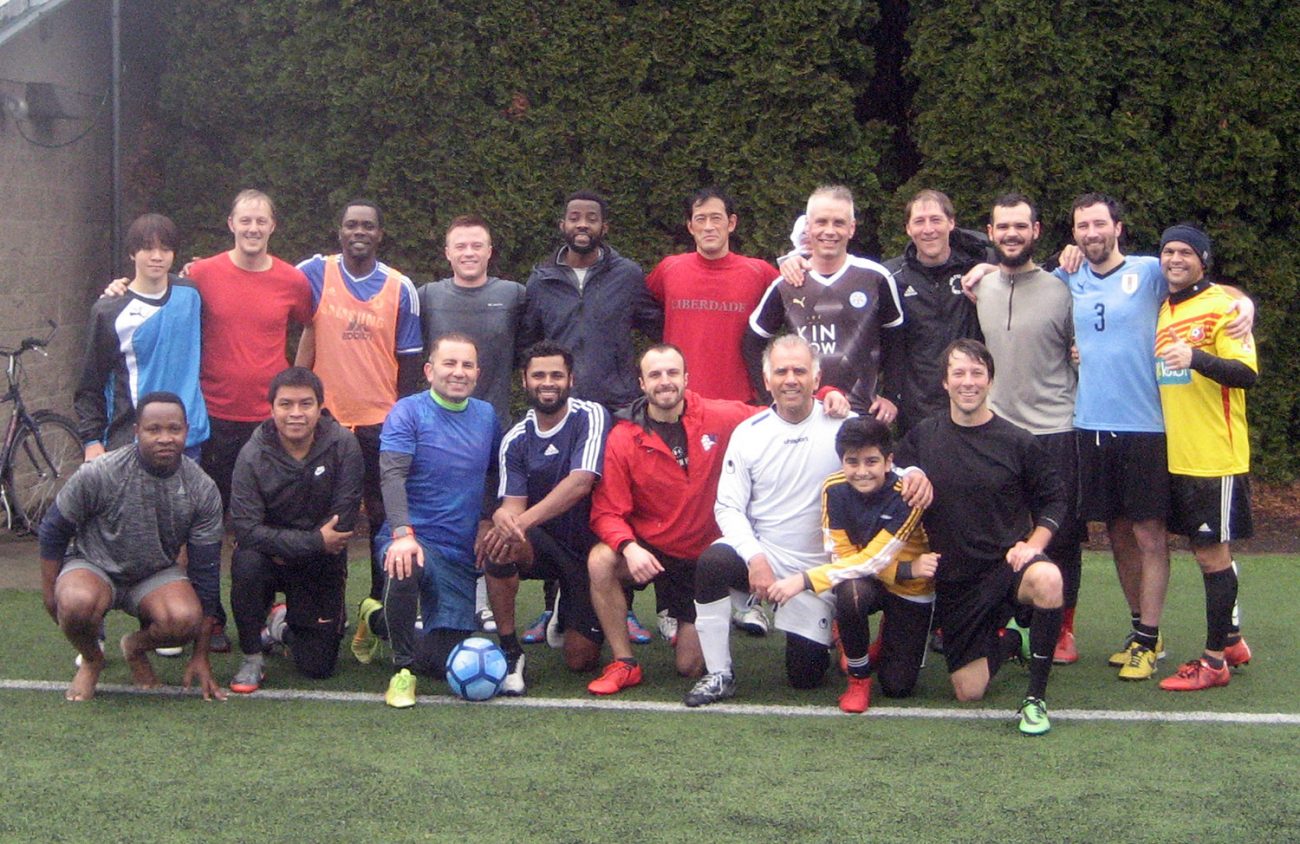I’ve long appreciated the psychotherapeutic value of soccer. Whenever saddened or stressed by personal problems, soccer has always provided me a reliable refuge of recreation and relief.
Many others, including psychologists, have appreciated this as well: the Swiss-Argentine psychologist Enrique Pichon-Rivière found soccer to be one his most efficacious methods of psychotherapy with patients at the El Borda psychiatric hospital in Buenos Aires. Drs. Paul Sivadon and George Daumezon came to a similar conclusion in France, and the National Health Service, in England, has teamed up with the London Playing Fields Foundation to implement a social inclusion project engaging people with mental health problems (called “Coping through Football”). Finally, the European Federation of Associations of Relatives and Persons with Mental Illnesses (EUFAMI) of Galicia, Spain, has organized many soccer tournaments and created a league with eight teams representing member associations.
However, my appreciation of the psychotherapeutic value of soccer — and the public spaces where no pay-to-play wall can impede access to such a valuable service — has suddenly reached a whole new level.
Having been recently diagnosed with a metastatic cancer of unknown primary and prescribed a probably irreversible colostomy, the last couple weeks have been the most psychologically and emotionally challenging of my life — albeit I’m only 35.
While sharing such shitty news with friends and family, a common question I’ve received is whether I’m considering seeing a psychotherapist. Without being dismissive of the benefits of psychotherapy, I’ve responded that, fortunately, I know a great group of guys with whom I can play casual-yet-competitive soccer. For the sake of linguistic economy, I’d like to simply respond that, fortunately, I have psoccertherapy.
Because we play soccer in public spaces, this method of psychotherapy is free — not to mention, I imagine, much more fun. Unfortunately, just as the physical health benefits of soccer appear more widely recognized than its mental health benefits, the physical health benefits of safe public spaces, where people of any socioeconomic status can play soccer (or other athletic or artistic activities), seem more widely recognized and more highly regarded than their mental health benefits.
With only five days until my scheduled colostomy, I eagerly approached my possibly final psoccertherapy session with elevated expectations of enjoying both physical and psychological benefits.
Those expectations did not go unfulfilled. What I did not expect, however, was the significant social benefits of this specific psychotherapeutic method. I knew I was lucky to play with a great group of friendly and respectful soccer players, but I was overwhelmed by their outpouring of support and generosity to help me recover from the colostomy comfortably and tackle my unhealthy physiological opponents. Robert Putnam would’ve been ecstatic to observe such “social capital” (of both a “bonding” and “bridging” nature) derived from pick-up soccer.
At a time when soccer in this country, especially for youth, is becoming increasingly inaccessible due to a pay-to-play wall, both the psychotherapeutic and social — in addition to the obvious physical — benefits of “the beautiful game” deserve more attention and appreciation. ν
Killian Doherty is a soccer lover from the Pacific Northwest who has played the beautiful game while living in several Latin American countries and now enjoys soccer in Eugene while providing legal assistance to Environmental Law Alliance Worldwide (ELAW).
A Note From the Publisher

Dear Readers,
The last two years have been some of the hardest in Eugene Weekly’s 43 years. There were moments when keeping the paper alive felt uncertain. And yet, here we are — still publishing, still investigating, still showing up every week.
That’s because of you!
Not just because of financial support (though that matters enormously), but because of the emails, notes, conversations, encouragement and ideas you shared along the way. You reminded us why this paper exists and who it’s for.
Listening to readers has always been at the heart of Eugene Weekly. This year, that meant launching our popular weekly Activist Alert column, after many of you told us there was no single, reliable place to find information about rallies, meetings and ways to get involved. You asked. We responded.
We’ve also continued to deepen the coverage that sets Eugene Weekly apart, including our in-depth reporting on local real estate development through Bricks & Mortar — digging into what’s being built, who’s behind it and how those decisions shape our community.
And, of course, we’ve continued to bring you the stories and features many of you depend on: investigations and local government reporting, arts and culture coverage, sudoku and crossword puzzles, Savage Love, and our extensive community events calendar. We feature award-winning stories by University of Oregon student reporters getting real world journalism experience. All free. In print and online.
None of this happens by accident. It happens because readers step up and say: this matters.
As we head into a new year, please consider supporting Eugene Weekly if you’re able. Every dollar helps keep us digging, questioning, celebrating — and yes, occasionally annoying exactly the right people. We consider that a public service.
Thank you for standing with us!

Publisher
Eugene Weekly
P.S. If you’d like to talk about supporting EW, I’d love to hear from you!
jody@eugeneweekly.com
(541) 484-0519
